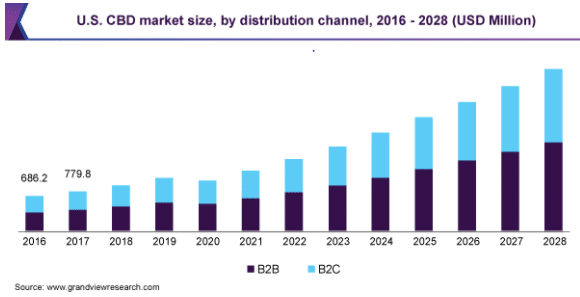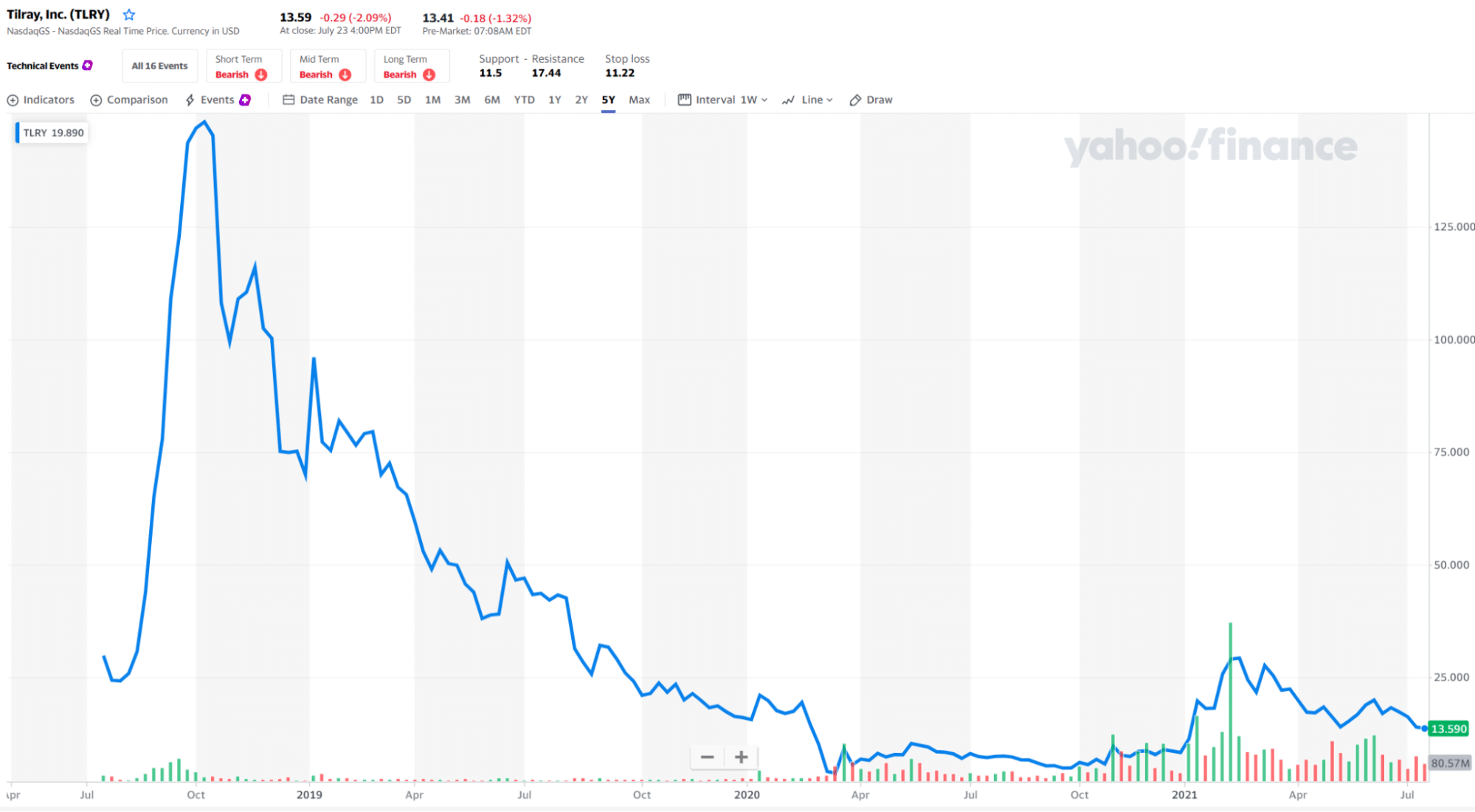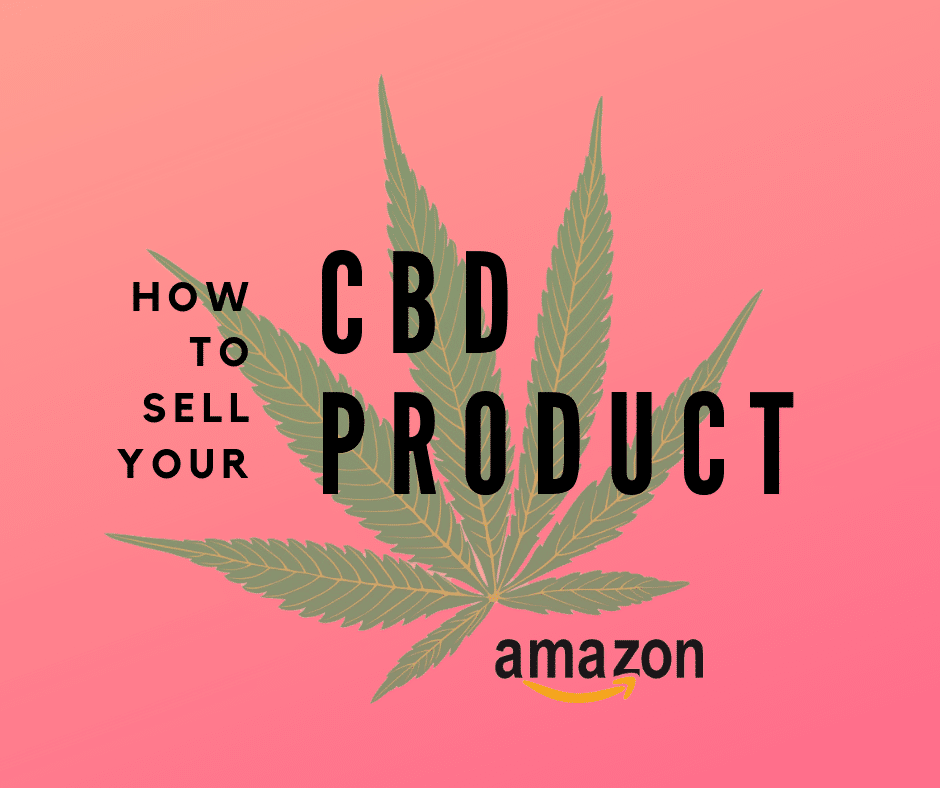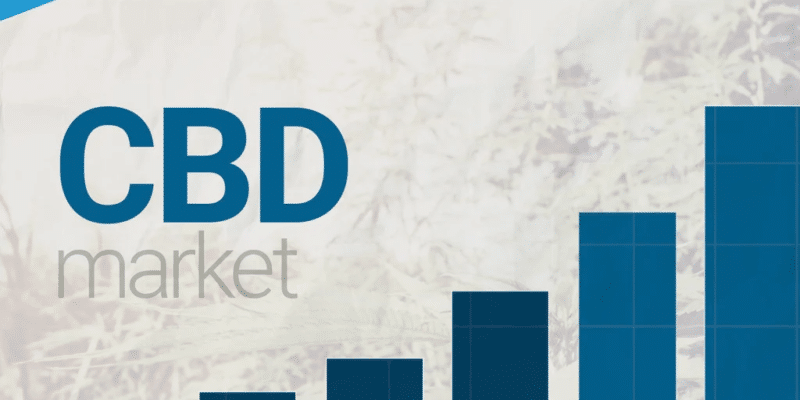Up until 2018, when Canada legalized recreational marijuana use, the cannabis industry was shunned and devilized. Since that first step by Canada, the overall growth of the marijuana industry has been nothing short of a phenomenon.
This growth and a global shift in attitude towards cannabis have resulted in different pot niches at the forefront of these niche developments in the CBD market. Cannabidiol is a composite product of the Cannabis sativa product best known for its medicinal use. In addition, CBD is utilized in the food and cosmetics industry.
Let’s look at:
- What is CBD and overview of the CBD market
- Role of e-commerce in the CBD market
- E-commerce opportunities in the CBD market
The CBD market
The two major components in the pot plant of interest to the cannabis industry are:
- Cannabidiol (CBD)
- Tetrahydrocannabinol (THC)
THC is the psychoactive part of marijuana and was responsible for the ban of pot and pot products in the early 1930s. However, studies over the recent years have demystified cannabis resulting in focused studies on both THC and CBD. Except for hallucinations in some users, both cannabis byproducts have shown to be of medicinal and general wellbeing value.
The CBD cannabis segment concentrates on CBD-based supplements. It is utilized to manufacture medicines, cosmetics, and supplements, either as 100% CBD or in an impure form that does not exceed 0.3% of THC. The CBD market as of 2020 was approximately valued at $3 billion.

The UN’s delisting of cannabis as a dangerous opioid, coupled with the global shift in attitude towards cannabis, is at the forefront of driving the growth of this sector. It is projected that the CBD market’s annual compounded growth rate for the next seven years will be 21%.
Given that over 50 states in the US have authorized the trade of CBD products, this approximation might be way below the real growth if the European zone adopts the same measures. This global adoption of pro-CBD legislation is expected to fuel the illegal CBD business to mainstream businesses boosting mass production of CBD-based products for the consumer markets.
What role will e-commerce play in the CBD market?
The digital world is no longer a thing for studies but the reality of our lives. The Covid-19 pandemic might be the last accelerant to push people towards online shopping for consumables. During the pandemic, the lockdown and associated stress of restricted human interaction saw the popularity of cannabis products sore; all cannabis stocks experienced growth.

The majority of the big players in the global cannabis industry are firms in the US and Canada. As the other countries legalize the use of CBD-infused products, established marijuana firms need not open franchises in those countries but go online to market and sell their products.
As part of the consumables niche, the CBD e-commerce industry has room to grow and take the market by storm. Data shows that in 2018 only 11% of the US consumables sales were made online. It is expected to rise to 19% by 2023, and if the pandemic showed us anything, it is that you don’t have to visit the brick-and-mortar store for your everyday use products.
Are there e-commerce opportunities in the CBD market?
A study on the shopping trends of Amazon’s prime customers shows that 19% of them bought a personal care product, with an additional 15% buying supplements and vitamins. For the non-prime customers, the two consumable niches recorded 13% and 10% customer base, respectively. With the US adult populace recording more than 60% familiarity with CBD products, converting this familiarity into sales is time.
The Biden administration, with Kamala Devi Harris the vice president at the forefront, is pro-marijuana. As more legislation is passed favoring the industry, the expectation is for the leading stream stores and e-commerce giants to invest in this multi-billion-dollar emerging industry. The first mainstream retailer to go onboard was grocery chain, Kroger, across 17 states in over 900 stores.
Amazon prohibits the sale of any products containing controlled substances. As the FDA continues refining CBD legislation, experts expect Amazon to get in on the action through its own Whole Foods brand label.

Despite not achieving the same feat as Amazon in sales across the supplements, cosmetics, and beauty segments, eBay also avails to the CBD market more than 179 million subscribers if it adopts CBD-infused products.
Final thoughts
The marijuana market provides an emerging consumables niche poised for growth, with huge potential making a ton of money. The global shift in how consumers view CBD-based products and pro-marijuana policies have resulted in reduced controversy.
As a result, mainstream retailers can comfortably invest in the industry for their brick-and-mortar establishments and online platforms.




















Comments